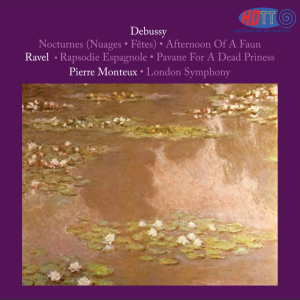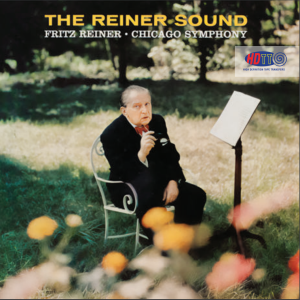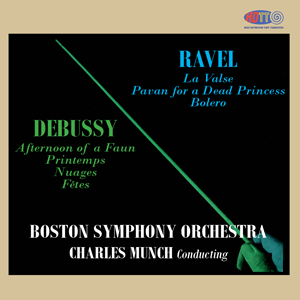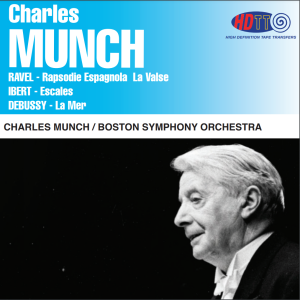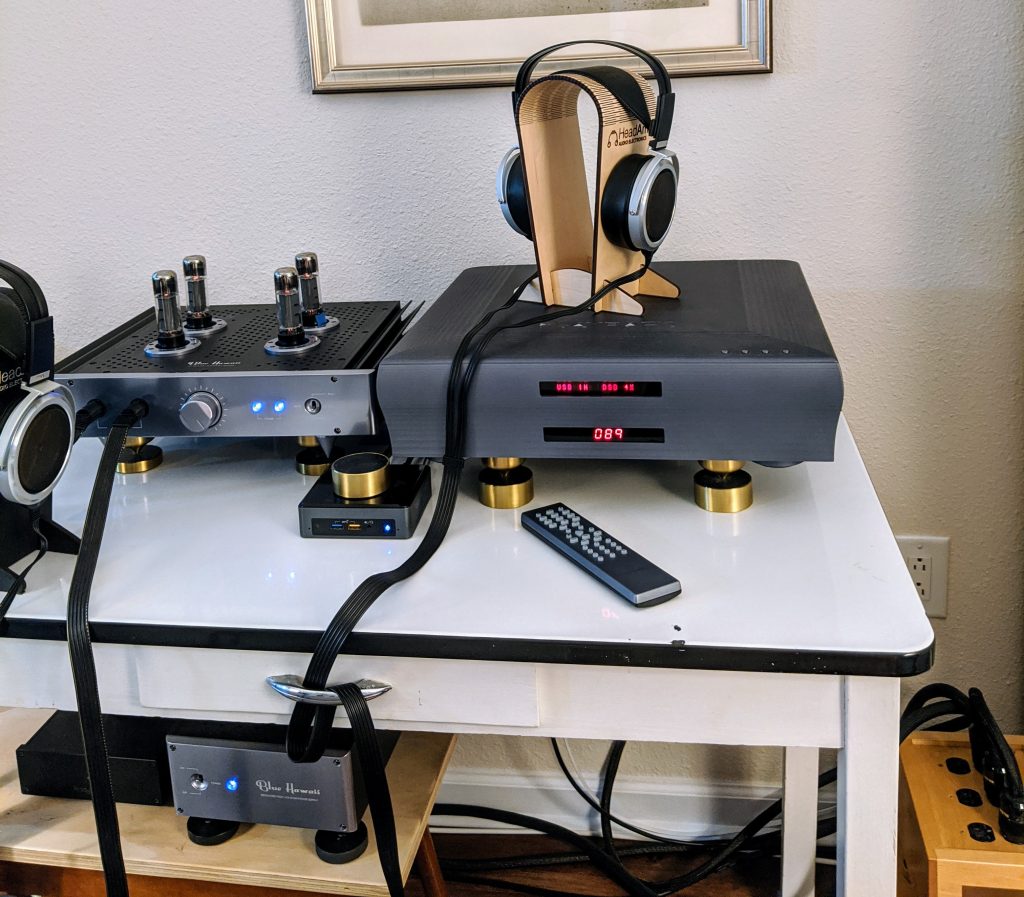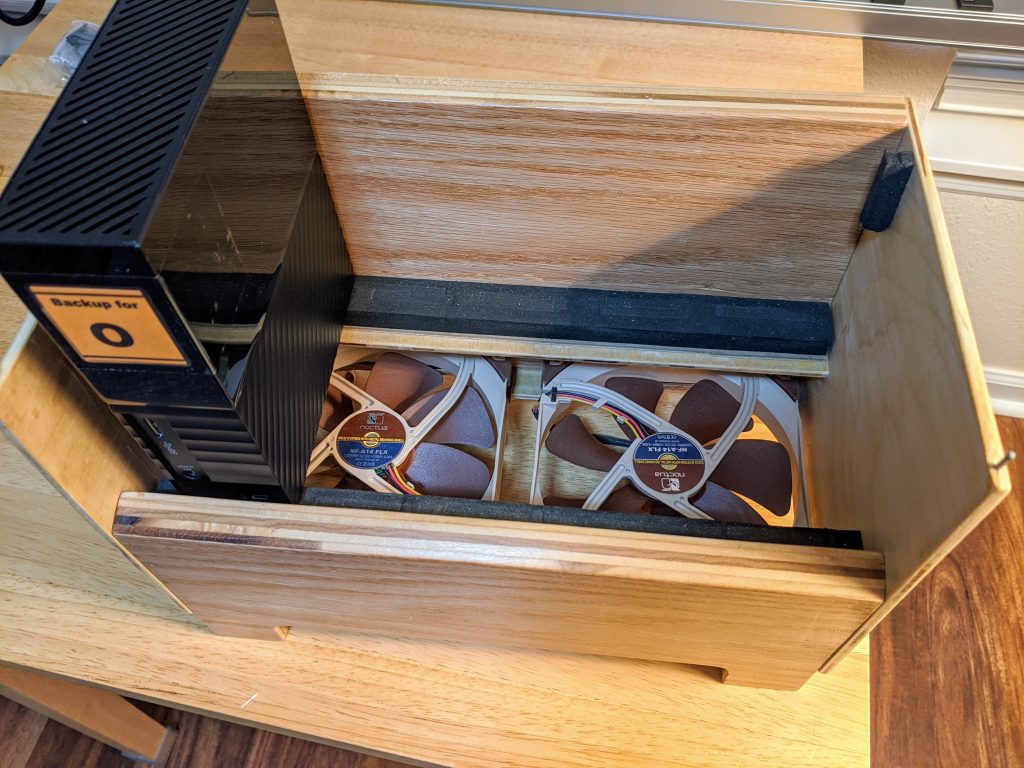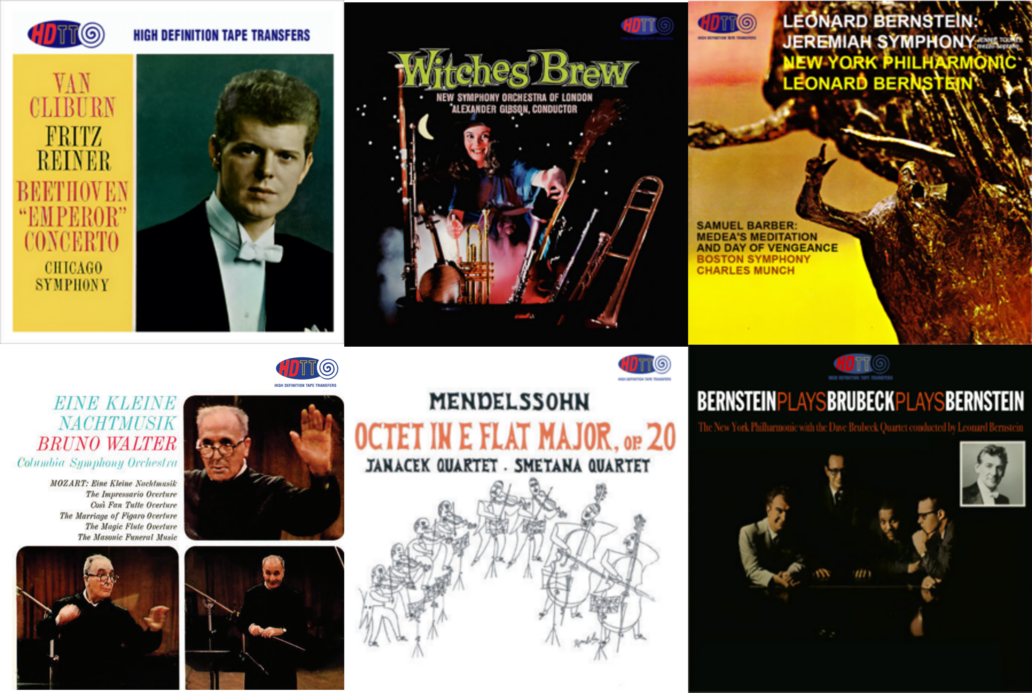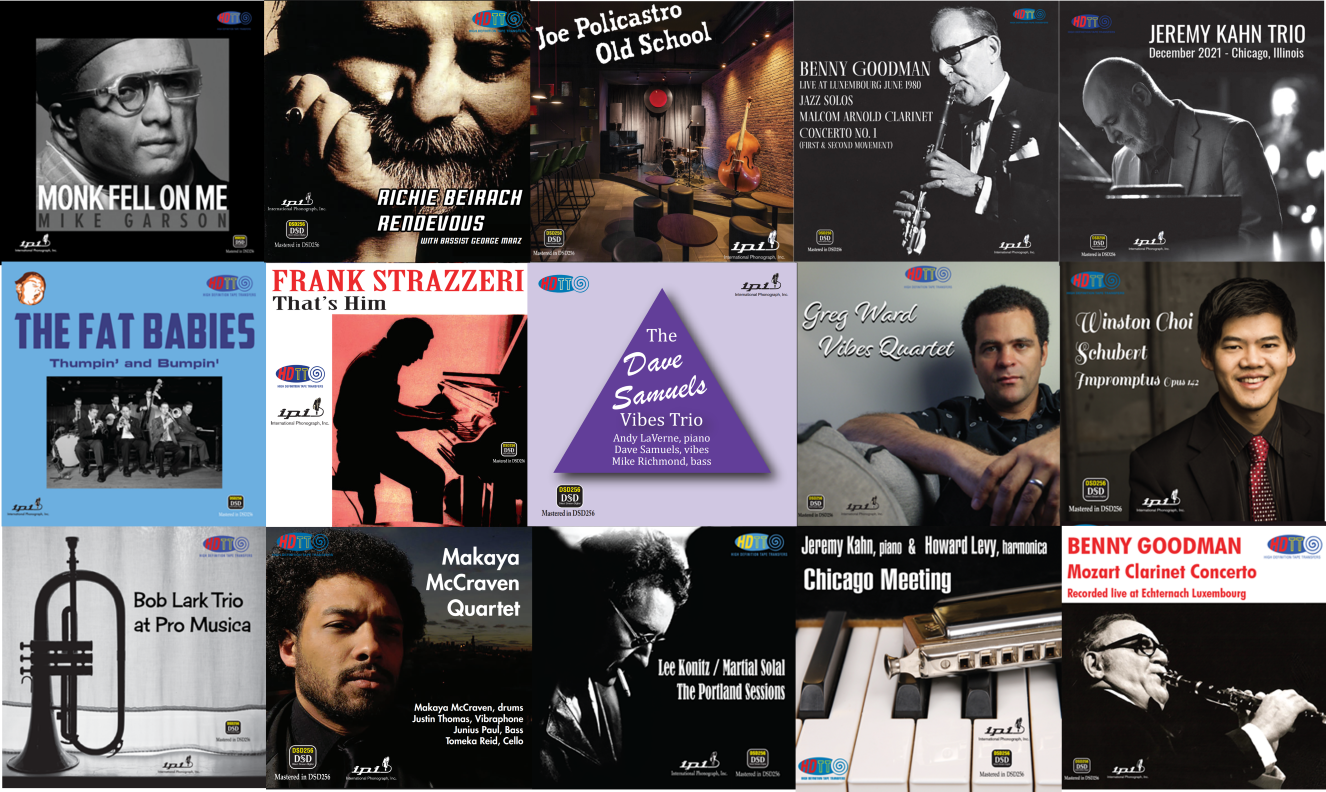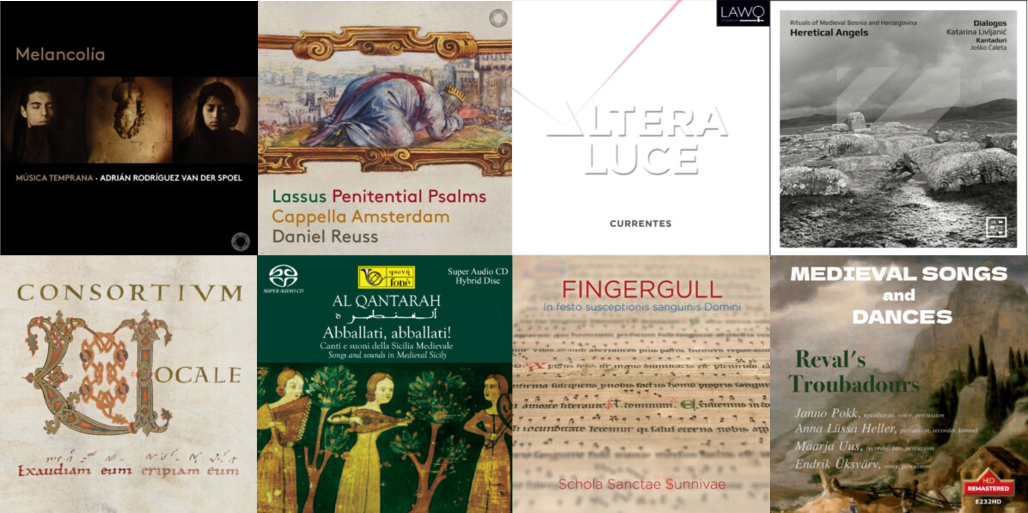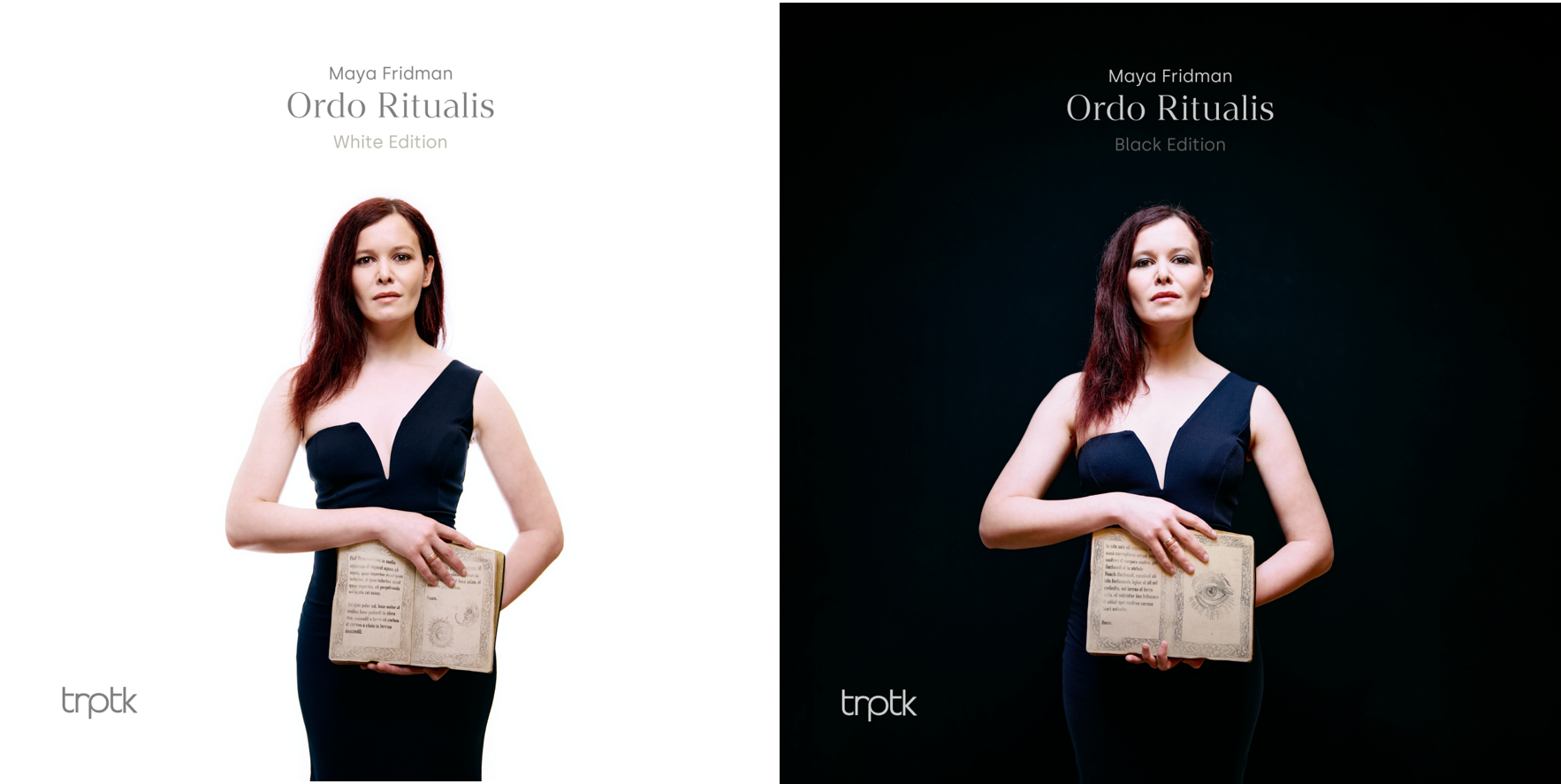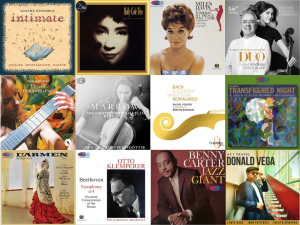Here we have one of the world’s greatest French conductors and one of the world’s finest French orchestras (albeit located in the United States) playing the very essence of French music. And this particular album is perhaps one of the greatest Mercury Living Presence recordings. We've been fortunate to have some good vinyl reissues over the decades, but we've been missing a truly excellent digital release. Until now. With this release from HDTT we finally have a digital release that truly matches the excellence of the underlying recording made by legendary recording engineer Bob Fine.
Ravel Rapsodie Espagnole, La Valse, Pavane Pour une Infante Défunte, Alborada del Gracioso; Ibert Escales - Paul Paray, Detroit Symphony Orchestra. HDTT 1962, 2022 (DSD256, DXD) HERE
HDTT cover on left, original Mercury cover on right
Paray and his Detroit musicians deliver to us a delectable mixture of some great music by Ravel and Ibert. These are arguably among the best performances these works have received. They certainly stand in the top echelon of performances in my music library. And yes, I do love André Cluytens in this music, and Charles Munch clearly has his charms. But for sheer joy in the music-making, Paray and the DSO simply carry the field for me.
I've long had several vinyl reissues of this album on my LP shelves and this LP was among those very special recordings that caused me trauma to lose in the downsizing. Since then, I've kept my eye out for a good digital reissue, but always came back disappointed. UNTIL NOW!
This HDTT release is resplendent in all the detail and resolution, naturalness of instrumental timbre, and dynamics that were missing from standard CD. (I was never able to find a SACD reissue and have concluded none was ever issued.) When I first listened to this transfer at my normal volume level, I was underwhelmed. Then I realized that the tremendous dynamic range of this recorded must have required the use of a lower gain setting on transfer from the tape. I'm just hypothesizing here, I do not know this for fact. But, what I do know is that when I increased my normal playback volume setting, this recording simply launched into dramatic life. It transformed into that fully alive, fully dramatic, hugely dynamic recording that I remembered from my vinyl reissues.
If you know and love the Mercury three-microphone recordings catalog, of which this is one of the greatest, you owe it to yourself to add this HDTT transfer to you collection. If you listen to vinyl and are happy with your LP version (whether original or reissue), I won't attempt to persuade you that you need this release. But, if you listen principally to digital as I now do, I think this release is a "must have" for classical music listeners.
For those who know this recording well, you may simply stop here.
For others, I'll continue with a few comments about Paray and the Detroit Orchestra.
Paul Paray is one of the best conductors in this repertoire, but his performances are not for everyone. His approach is, in general, to drive forward with dry, lean textures and crisp, driving rhythms. His flexibility of phrasing combined with this lean textures give his performances a lithe dance-like character. His work is supple, it is nuanced. Above all, it is not sentimental. You will not find with Paray the gentle, loving embrace that allows one to luxuriate in soft pleasures of sound. He will not give you the sensuous warmth of Martinon and the CSO. No, he at his best when the music calls for dry, sly wit and a sardonic, stylish touch. He is a master at delivering absolute clarity.
This clarity is perfect for Mercury recording engineer Bob Fine's minimal microphone style of recording.
And, the combination of conducting style and recording style is best heard in the wonderful performance of Ibert's Escales (Ports of Call), arguably the best performance of this work one may find in the catalog.
Paray is not kind or gentle in this music. He is not making "pretty" sounds (although the whole is most beautiful). Ravel's La Valse (1919) is a work subject to many interpretations. Some completely opposite the other. And Ravel never clarified his intentions for us. My take on this work is that Ravel wrote it as a cruel parody. He wrote it following the end of WWI in which he served as an ambulance driver and experienced all of the horrors of the war. This is not a pretty, genteel waltz. It should not sound kind and pretty, it should be anything BUT kind and pretty. It should bite. It should be coldly vicious. It should shout with vituperation and bitterness at the events of the world in the time Ravel wrote this. Paray gives us all of this savage, merciless, cutting, bitterness in a way few conductors manage, and his subtle phrasing imparts nuances to this piece that other performances miss. Overall, Paray's performances makes the work ring in your head for hours after listening.
On the other hand, some would consider Paray's presentation of Ravel's Rapsodie espagnole is troubled by a lack of warmth and fantasy in the quieter sections (not debilitating by any means, but noticeable in comparison to several other interpretations). Paray misses some of the magic of these sections that Martinon/CSO or Monteux/LSO bring out so nicely. And Reiner's performance of Alborada del gracioso with the Chicago Symphony presents far greater allure in the strings and woodwinds than the Detroit players (or Paray?) provide; the overall quality of the CSO musicians (in every section) simply outclass Detroit. Paray drives this music crisply, whereas Reiner allows it to flow a bit more (6:39 vs. 7:14). It is a credit to the Detroit players that they play like mad and keep up with their leader.
Still, nits aside, these is a grace and elegance to this album overall that simply enchants me each time I listen. And the excellent sound quality of this release is something very, very special. Highly recommended.
Paul Paray portrait, public domain.
Here are some alternative recordings for various of the individual works contained on this Paray album. All available from HDTT in DXD/DSD256 or DSD128; all are excellent recordings in excellent tape transfers. But, the performances are very individually different. I love them all.
Contains Reiner's performance of Ravel's Alborado del Gracioso HERE
Contains Monteux's performances of Ravel's Rapsodie Espagnole (bracing) and Pavane Pour une Infante Défunte (tender) HERE
Contains Reiner's performance of Ravel's Rapsodie Espagnole (sinewy and sinister, lustrous and lyrical, as required) HERE
Contains Munch's 1963 performances of Ravel's La Valse and Pavane Pour une Infante Défunte HERE
Contains Munch's 1956 performances of Ravel's Rapsodie Espagnole (fiery) and La Valse (sinister, somewhat deranged) and Ibert's Escales (Ports of Call) (with panache) HERE
Contains Stokowski's performance of Ravel's Alborado del Gracioso and Ibert's Escales (Ports of Call). HERE
Note: The sound quality of this 1959 Capital recording is very clear and defined, but it lacks some of the fullness and orchestral richness of timbre of some of the other recordings above. This may be as much the ONRF as the recording, however. Stokowski leads with his usual full-on expressiveness.







